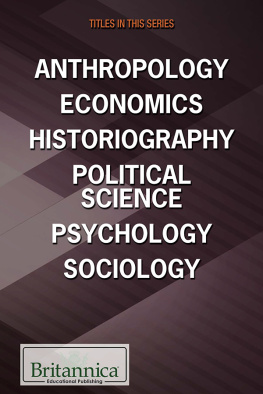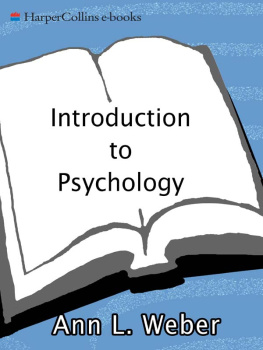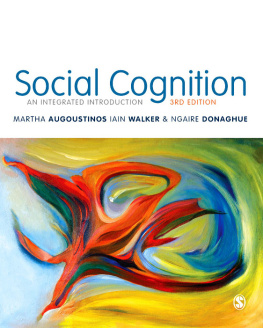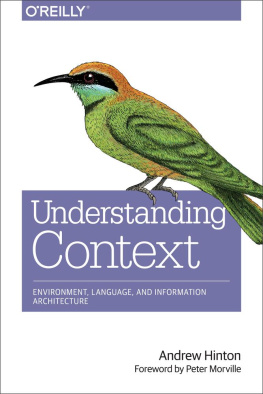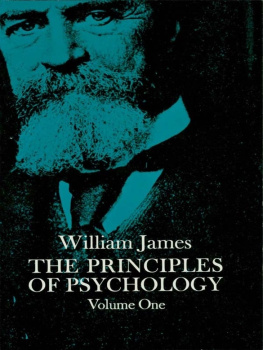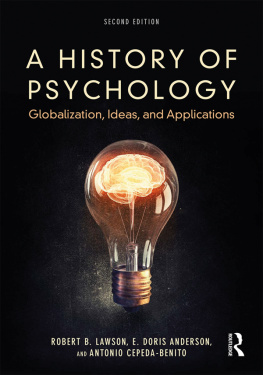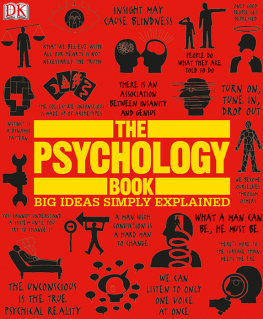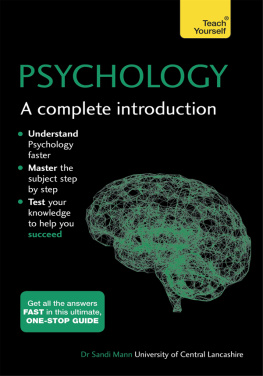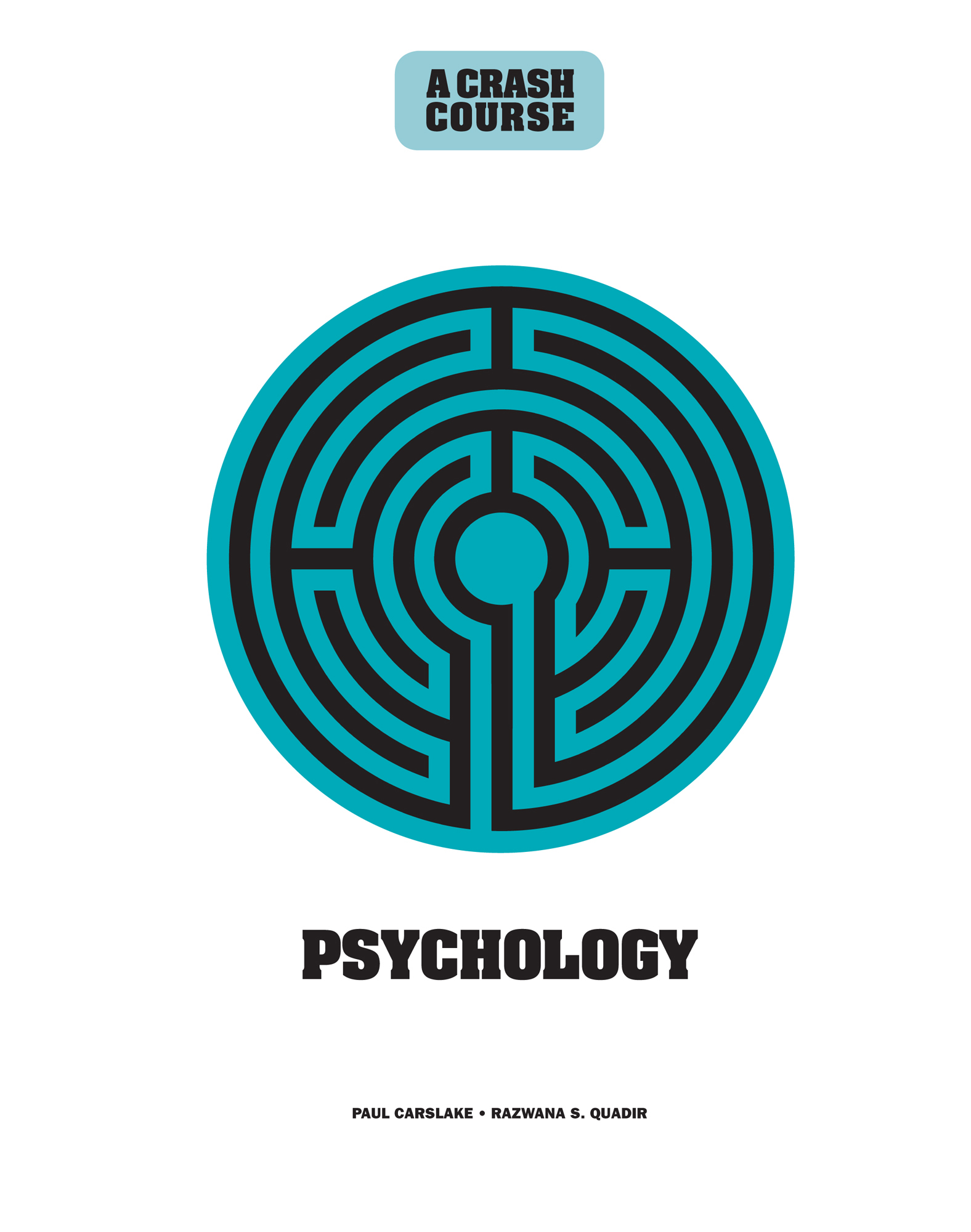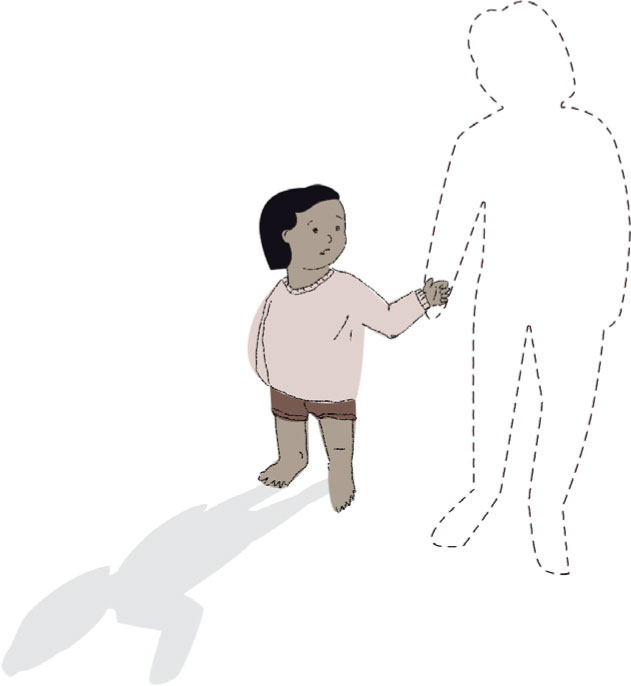The fact that you have picked upand possibly boughtthis book suggests you have a certain curiosity about psychology. It could be an interest in why people behave as they do. How we decideor dont. What we notice and fail to notice. Why good people do bad things. How we make sense of events. Or why we seem to be hardwired to react in a certain way every time: how we think, how we communicate, even how we fall in love. In short, how our minds work and how we manage to live in this world alongside other people.
What is psychology?
Psychology is the science of the mind and behavior. It is a huge field, but a relatively young science. For centuries, questions about the mind and the idea of the individual self were the domain of philosophers (and, in fact, there is a book on that subject in this same series). During the nineteenth century, physicians took an interest in the brain, beginning to realize, for example, through the evidence of patients with head injuries, that certain parts of the brain seemed to control certain behaviors, including what appeared to be emotional responses. But it was only toward the end of the nineteenth century that the science of psychology really got started, first with the introspectionists working on consciousness, awareness, and memory in laboratory experiments, followed soon after by decades of psychological experimentation by the behaviorists, who were interested in how humans have a propensity to respond to stimulusto the point where our behavior might be overwhelmingly driven by conditioning and reinforcement. Ivan Pavlovs laboratory dogs are the classic example.

Around the same time, at the turn of the twentieth century, a totally different and competing approach emerged: that of Sigmund Freud and psychoanalysis, with, for the first time, a complete theory about the internal world of our mindssomething impossible to test in the lab, but a theory that gained enormous traction for the ensuing fifty years, particularly in the treatment of certain types of mental illness. By the middle of the twentieth century, a new and important strand of psychology came to the fore, looking at how we make sense of the world around us and the events that we encounter: cognitive psychology. This is a vast field of psychology that brings together every aspect of our outside worlds with the thinking and processing of our minds: a field that is populated not only by experimental psychologists, but also by information-processing experts and neuroscientists.

Psychology has branched out extensively in recent years, covering all aspects of mental life and human behavior, and extending its knowledge and explorations into medicine, neuroscience, computer science, clinical interventions, and self-help, as well as into politics, economics, and the law. Its findings can be applied to us all in some capacity or at some point in our lives, from the everyday decisions we make about what to wear or what to eat, to the bigger questions about who we are and what we believe, and ultimately to our sense of well-being (or not). The importance of mental health has received an increasing spotlight over recent years and poor mental health is no longer seen as something to be ashamed of or hidden away, but something that demands due attention and care. Our mental health is inextricably tied to our physical well-being, and the ability to live healthy, happy, and functioning lives. The importance of understanding human psychology and its effective application in our lives cannot be denied.
Casting off the old clichs
While the discipline itself has evolved, so have its practitioners. If you think of a psychologist, what kind of image do you have in mind? In the many cartoons featuring psychology jokes, we usually see a balding, middle-age man wearing a lab coat. Much of the research in this book comes from a time when the constraints and biases of society during the twentieth century meant that women had few opportunities to study for a Ph.D., let alone to lead a research department. The same was true for most ethnic minorities, with a few notable exceptions. A survey in 2002 of the 100 Most Eminent Psychologists of the Twentieth Century came up with 95 men and just 5 women.
Today, however, the picture is changing. In 1975, only 30 percent of Ph.D. students in psychology in the US were women. Currently, the figure is more than 70 percent, and around three-quarters of early-career psychologists today are women, a trend that can be seen worldwide.

How the crash course works
Finally, a word on how this book is organized. We have grouped the 52 topics into four main chapters, preceded by some explanations of the various schools of thought in psychology that provide a little historical context. Our first main chapter, Development & Language, looks at how we learn and develop, both as social beings, and as individuals, learning to think and to communicate and understand the unspoken rules that govern our behavior. brings together some of the most famous experimenters in the field of Perception & Cognition, from studies of memory and perception, through to the ways in which we can deceive ourselves, and the role played in all this by emotion. Our third chapter, Social Psychology, provides a glimpse into some fascinating research on the extraordinary ways in which we interact and are influenced by others; and the final chapter, Psychology of Difference, looks at the ways in which humans, although similar in form and needs, differ, with a focus on personality and the realms of abnormality.
It is of course impossible to try to embrace the whole of psychology in this short book, but the point of a crash course is to cover as much ground as possible at high speed, a kind of freeway journey to knowledge. Of course, the trouble with freeways is we cant always appreciate the landscape around us, and it can pay dividends to take the exit ramp and explore the terrain in more detail and at a leisurely pace. We hope this book will at least show you whats out there. After that, well leave it to your own curiosity to lead you to further discoveries.
How to use this book
This book distills the current body of knowledge into 52 manageable chunks, so that you can either skim-read or delve in a bit deeper. There are four chapters, each containing 13 topics, prefaced by a set of biographies of key psychologists in the field. The introduction to each chapter gives an overview of some of the main concepts you might need to navigate the topics.


